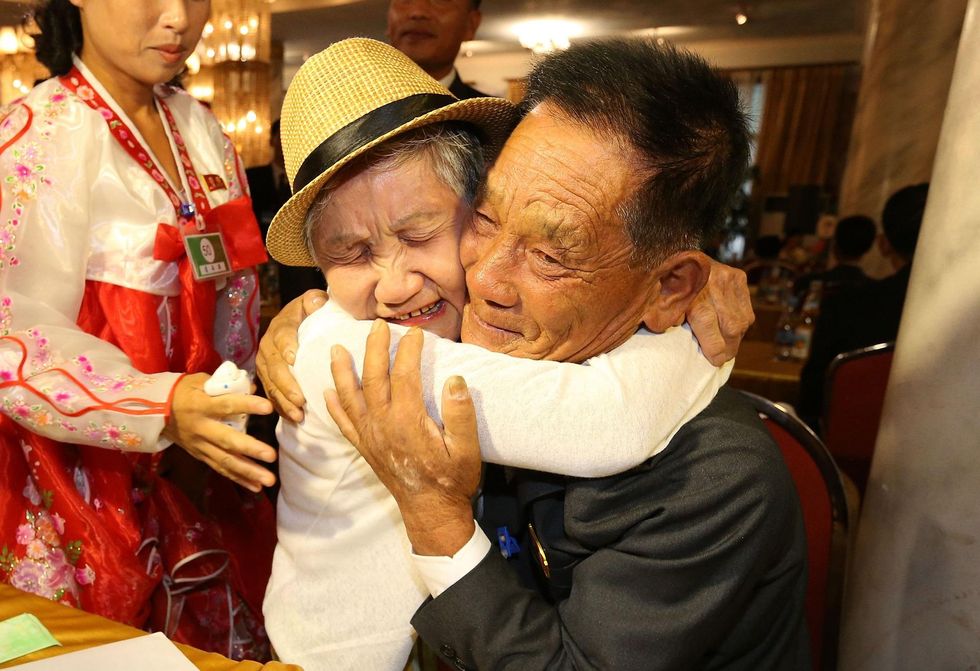
South Korean Lee Geum-Sum, 92 (left) meets with her North Korean son Lee Sung-Chul, 71, during a separated family reunion meeting Monday at the Mount Kumgang resort in Mount Kumgang, North Korea. (O Jong-Chan-Korea Pool/Getty Images)

Roughly 100 elderly South Koreans and their families were bussed across the North Korean border on Monday, in order to reunite — albeit briefly — with relatives most haven't seen since the Korean War.
During the reunions, emotions ran high in North Korean tourist resort on Mount Kumgang. War refugee parents were finally able to see their own children for the first time after more than six decades. Siblings embraced — even brothers who fought on different sides during the 1950-53 Korean War.
According to South Korean officials, most participants are in their 80s and 90s. Seoul's Unification Ministry reports that 75,000 of the 132,000 citizens who applied to attend a reunion have already died.
Family visits are limited to 11 hours. In the history of the program, no one has been allowed to see their loved ones a second time after participating.
The two countries have held 20 rounds of such exchanges since 2000, but Monday's reunions were the first in three years. North Korean leader Kim Jon Un and South Korean President Moon Jae-in agreed in April to resume holding the family visits, as part of efforts to improve diplomatic relations.
President Moon —who himself is part of a divided family — has pressed for increasing the frequency and scale of reunions.
"It is a shame for both governments in the South and the North that many of the families have passed away without knowing whether or not their lost relatives were alive," he said.
"Expanding and accelerating family reunions is a top priority among humanitarian projects to be carried out by the two Koreas."
South Korea selects reunion applicants to participate using a computerized lottery. The Associated Press reports North Korea is believed to pick participants based on their loyalty to its supreme leader.
Another 337 South Koreans will be granted reunions later this week.
According to the AP, analysts say North Korea views the reunions as a bargaining chip, and is resistant to allowing its citizens more access to life outside their authoritarian country.
Reporter Benjamin Haas of The Guardian noted "stark differences" between the North and South after observing Monday's exchange. He noticed the South Koreans often gifted their Northern relatives necessities like coats, socks, toothpaste and medicine.
Haas said South Koreans were discouraged from gifting cash, out of fear it would be confiscated by the North Korean government.
Breck Dumas